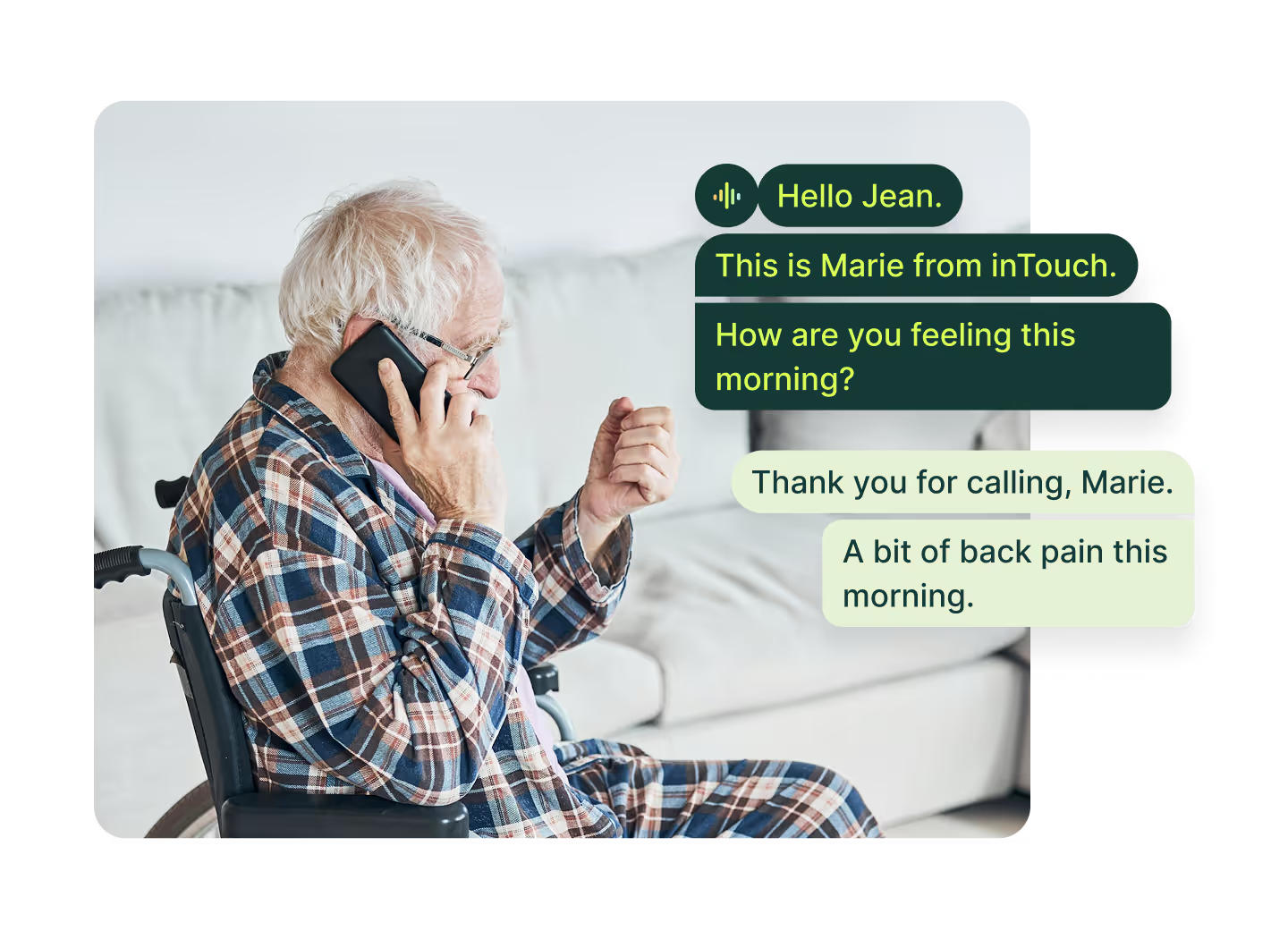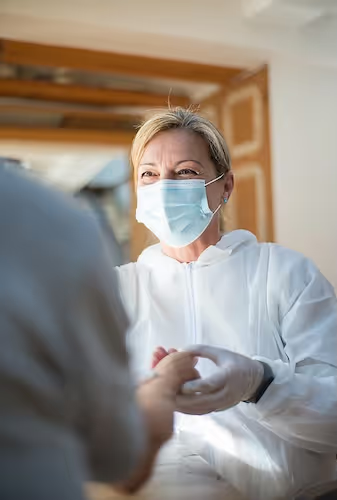A gentle nudge that supports daily wellbeing
Residents often benefit from a gentle reminder to stay on track, whether it's to hydrate, take medication, or prepare for an appointment. InTouch reminders are brief, supportive, and consistent, helping residents feel cared for while reassuring your team.

Benefits

Encourages healthy habits through gentle, nonintrusive support

Reduces missed medications or hydration lapses

Supports independence without increasing staff workload

Helps families and staff know that small but important tasks are not forgotten
Morning Check-ins
Who it helps
Outpatients living alone or semi-independently
Residents in assisted living who appreciate daily contact
Seniors who may be at risk of isolation or unexpected health issues
What Makes inTouch Special


Bring inTouch to your
care home
We would love to learn about your residents and show how inTouch can support your care goals with warmth and ease.

FAQs
Wondering how inTouch works? You’re not alone — below are the answers families often ask us.
Would My Mom or Dad really talk to an AI?

Many families wonder that at first — and we understand. But most older adults feel at ease within the first few seconds. That’s because every inTouch call is designed to feel like a natural conversation with someone their age: thoughtful, warm, and genuinely interested. No robotic voices. No pressure. Just a gentle voice that listens, asks kind questions, and gives them space to talk — or pause — at their own pace.
What is an inTouch Morning Check-in?

Morning Check-ins are short, structured phone calls that gently ask each participant how they’re feeling and whether they need anything. A concise daily report is then sent to your care team, helping staff stay informed, spot patterns, and ensure no small detail is overlooked, all without adding to the team’s workload.
How do Morning Check-ins support care staff?

Morning Check-ins offer a reliable touchpoint that helps your team stay connected to each participant’s wellbeing, even before the day begins. They reduce uncertainty, surface small concerns early, and provide structured insights that can guide care without increasing your team’s responsibilities.
What is included in the daily report?

Each report includes the participant’s name, whether the call was answered, and a short, structured summary of the conversation. It also highlights any keywords related to wellbeing or medical needs, helping staff quickly identify residents who may need extra attention or follow-up.
How are the calls delivered?

Each Morning Check-in is a short, structured phone call delivered in a clear and friendly voice. The call gently asks the participant how they’re feeling and whether they need anything. Their response is summarized and shared with your care team as part of the daily report.
Do participants need to do anything during the call?

They simply need to answer the phone and respond to a gentle check-in question, such as how they’re feeling or if they need anything. The conversation is kept short, natural, and easy to follow, offering structure and support without pressure.
Can the calls be scheduled at different times?

Yes. While most check-ins are placed in the morning, the timing can be adjusted to suit each participant’s daily routine or your facility’s care schedule. This flexibility helps integrate the service smoothly into existing workflows.
Is the service compliant with data privacy regulations?

Yes. inTouch is fully GDPR and HIPAA compliant. All reports are securely shared with authorized staff only, and no calls are recorded. Participant information is handled with the highest level of confidentiality and care.
Do Morning Check-ins replace care rounds or medical visits?

No. Morning Check-ins are designed to complement your existing care routines, not replace them. They provide early, structured insight into how each participant is doing, helping your team prioritize care more effectively and respond to subtle changes before they escalate. It’s a light-touch support that fits easily into your workflow without adding to the clinical workload.









